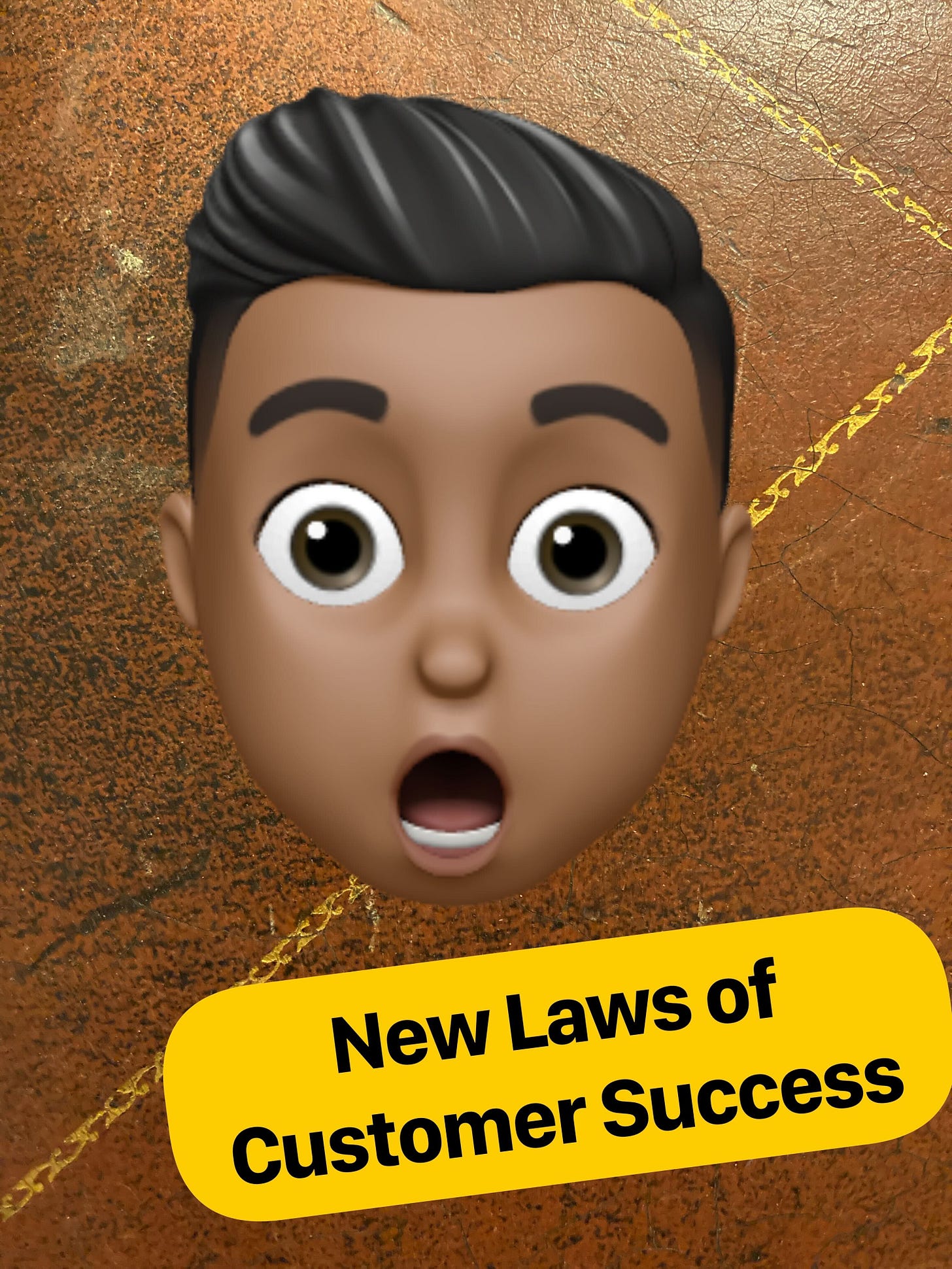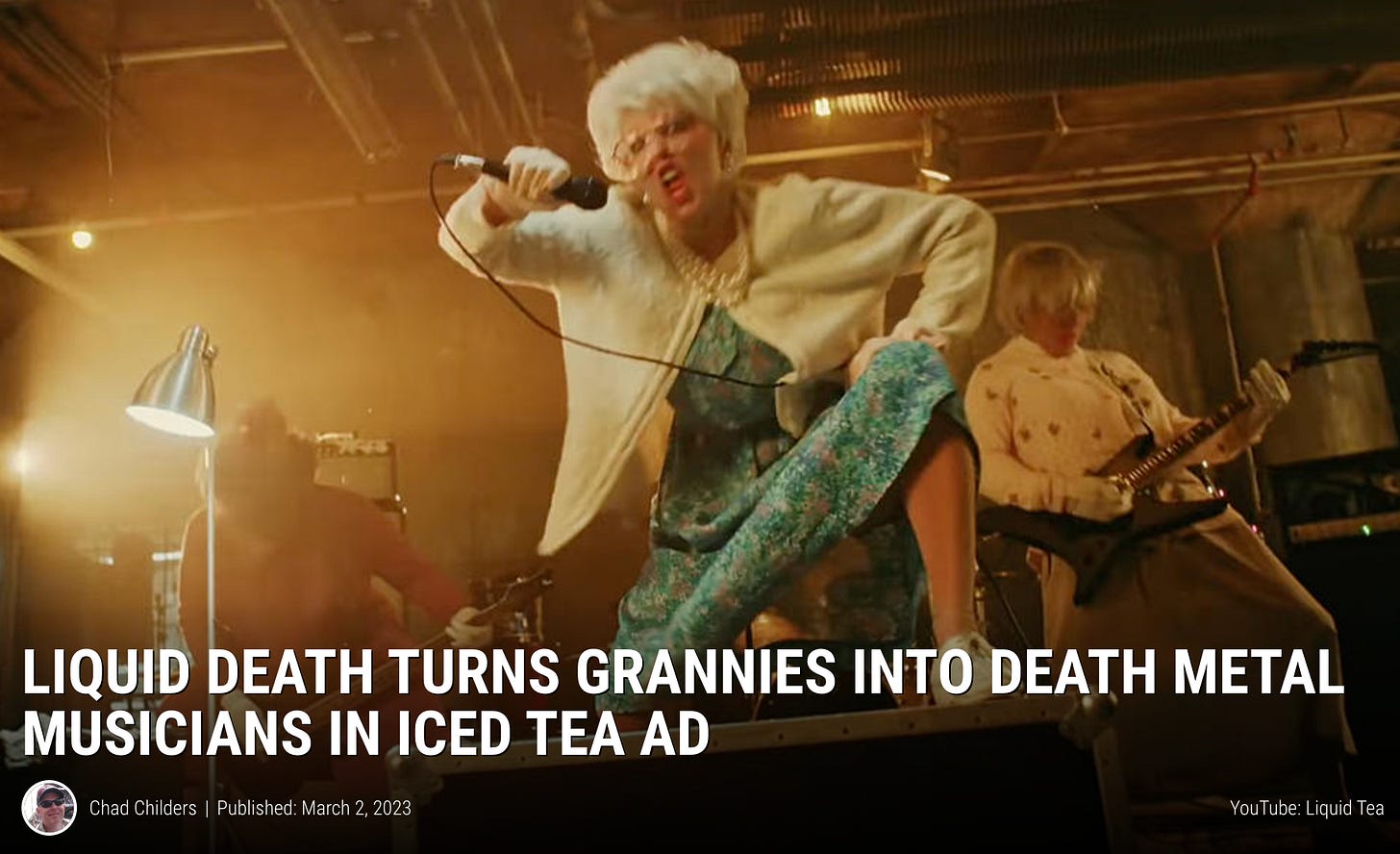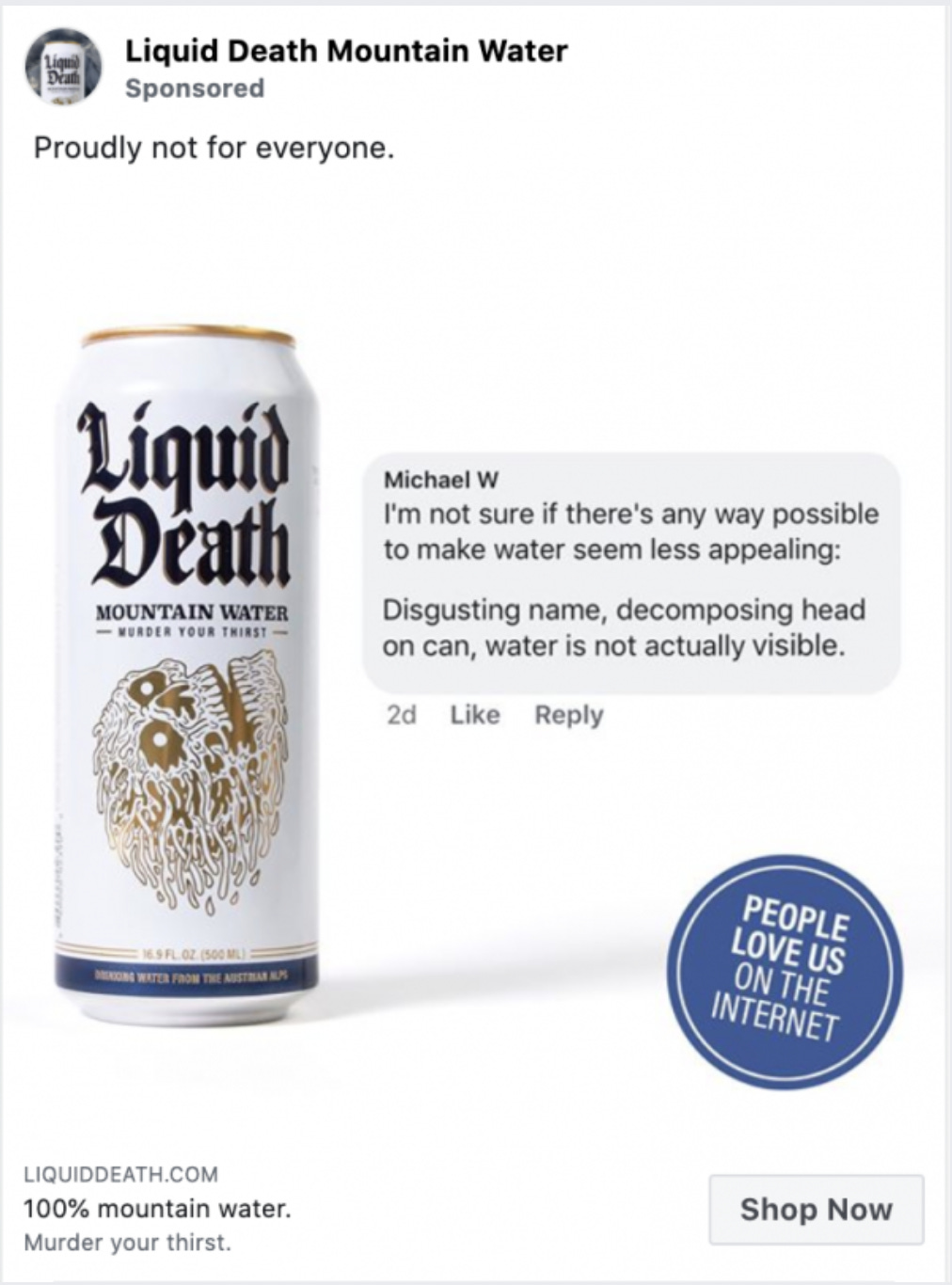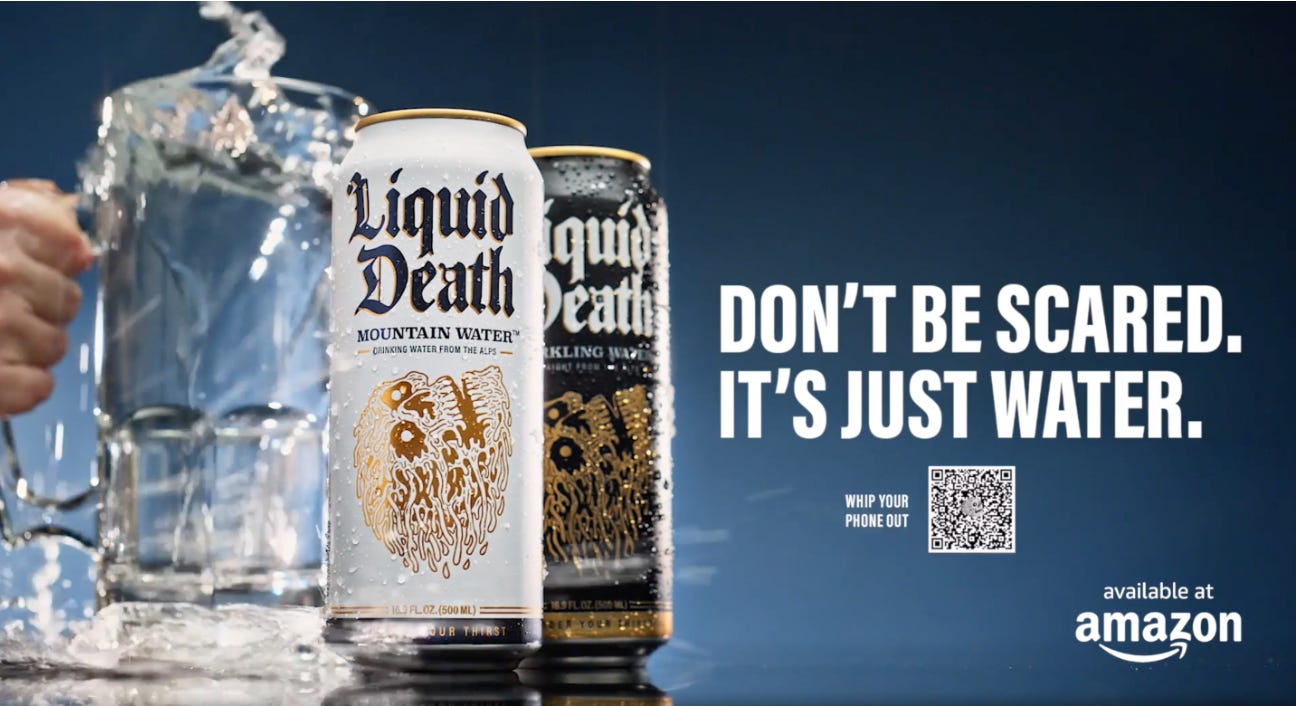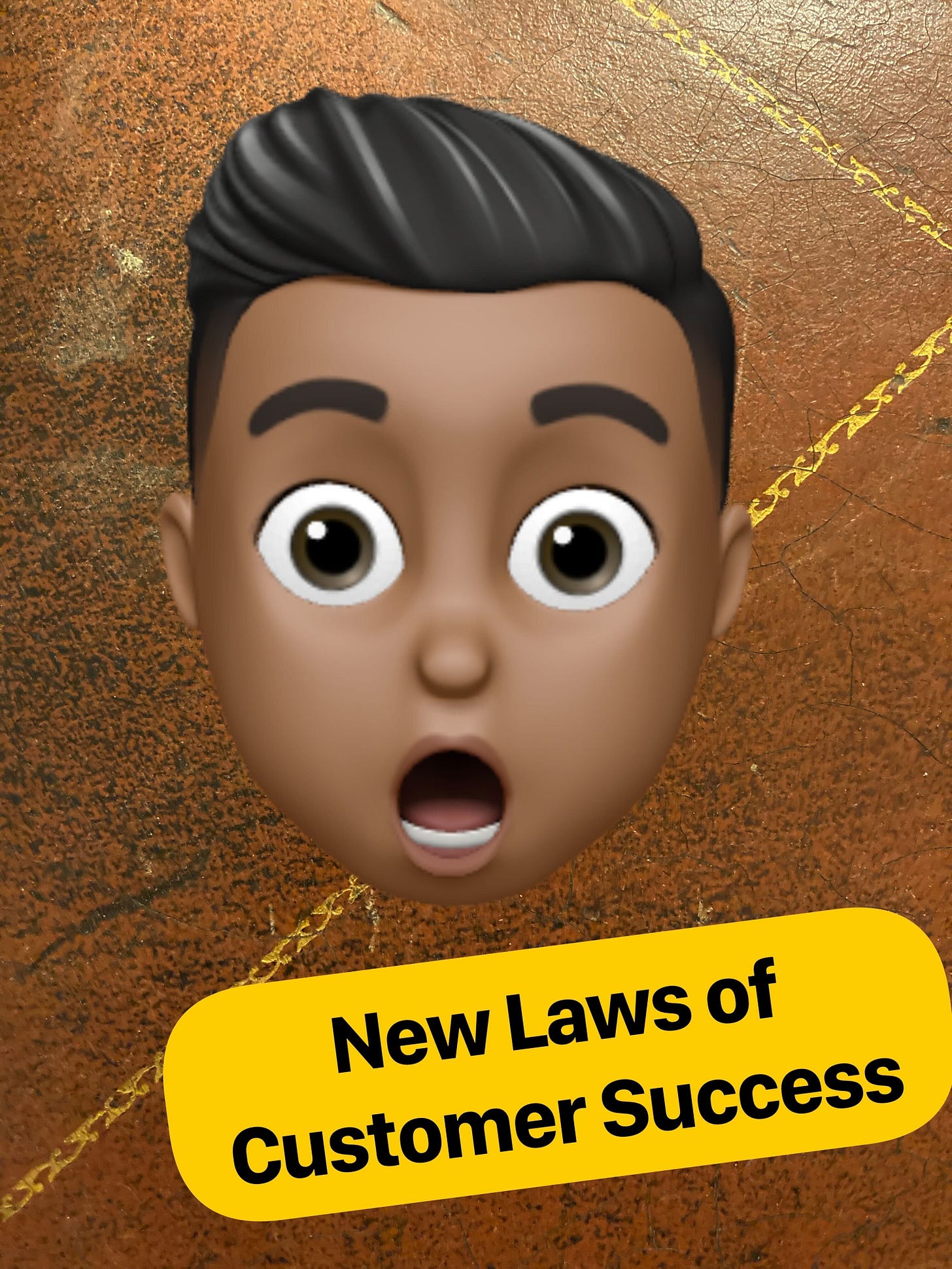3 genius career hacks I've learned from a $700 Million Entrepreneur... (for CSMs and customer facing professionals)
What I've picked up from reading about Liquid Death's founder, Mike Cessario
Hey friend. This is NLCS. The tactical newsletter on the world's best writers, marketers, and psychologists. Why? Because we break down their frameworks so you can use them to improve your executive-level communication skills and become unforgettable in less than 5 minutes a week.
Aquafina and Dasani sell $2 billion in U.S. bottled water each year.
But - this founder is scaring the hell out of these companies owned by Pepsi and Coca Cola - with a stupid name, a Facebook post, and a clever plan.
(By quickly launching a $700 million water brand)
Here's Mike's strange story, as well as what Mike and Liquid Death taught me about career advancement (for CSMs and customer facing professionals).
“Hundreds of people asked, “Is this real?”
Mike Cessario founded the canned-water startup Liquid Death.
During the Warped Tour in 2008, Mike saw that a lot of rock bands were sponsored by energy drink brands. But the bands told him that they put water in the cans instead of energy drinks because they liked water better. He said to himself, "Why not make a brand of water that bands would be happy to drink in public?"
That's how Liquid Death came to be.
Now, Mike knew he needed to prove the concept before raising funds because the idea was so crazy.
He spent $1.5k on a commercial and $3k on paid Facebook ads. Within three months, Liquid Death had more Facebook followers than Aquafina, and the ad received 3 million views. According to Mike, he received hundreds of comments saying, "This is the best thing ever... Is it real?"
He used this enthusiasm to raise money from friends and family to fund his initial order of $250,000.
Sales have increased, and Liquid Death Mountain Water secured a $70 million Series D fundraising round on October 10, 2022, valuing the company at $700 million.
What Mike and Liquid Death taught me about advancing my career:
1) Be insanely interesting
“The only way the brand would have a chance at survival is [that] the actual product itself has to be so insanely interesting, where so much of the marketing is baked into the product” Mike C., founder of Liquid Death
You are the product in your career.
If you really want a job and are applying for it, ask yourself, "How can I get the employer's attention so that they have to ask, "Is this real? ....we need to talk to this person."
If you want to impress your customers and colleagues, present yourself in such a way that they think to themselves, "Wow, this person just gets it."
2) Replace corporate buzzwords with plain English
“We want to actually entertain people [and] make them laugh in service of a brand. And if you can do that, they’re going to love your brand because you’re giving them something of value. You’re actually making them laugh.” Mike C., founder of Liquid Death
As a CSM, or customer-facing professional, you are competing for your customers' attention and trying to influence them to use your product in a different way. Speak to them like humans, not B2B products.
When your customers are requested to describe your product to their executives such as their CFO, you need to write and say things that make it easy for them to do so.
Use the Pratfall Effect, a psychological phenomena identified by psychologist Elliot Aronson, which states that people are more likable when they show their flaws.
3) Consider "stupid ideas"
“What’s the dumbest possible idea? If you try to think of a smart idea, then your brain is hard-wired to think about successful examples that already exist. You kind of have to trick your brain to come up with a bad idea to truly be thinking in innovative territory.” Mike C., founder of Liquid Death
As a CSM, or a customer facing professional, you’ll have to work on internal projects inside your company.
And most employees list a bunch of goals and ask for a million dollars from the company to attain them.
Instead, achieve success by understanding what to avoid and being the person in the meeting who asks questions like, "How could this project fail?" "What don't we want to do to achieve this goal?" "What would make this job unbearable for everyone here?" “What the dumbest possible idea to get this done?”
That’s it for this week :)
Every week, I dedicate over 80 hours to learning or practicing effective communication techniques so that I can distill it all into a <5-minute read for you.
I spend a lot of time making sure I write something that brings value to you.
The best compliment you could pay NLCS would be to share it with one person who would find this content valuable.
If you know any customer facing professionals who could benefit from this level of transparency, I would love to bring them into our small circle of people who care about this topic. Please feel free to forward this article and others from the NLCS to grow our tight-knit community one person at a time.




